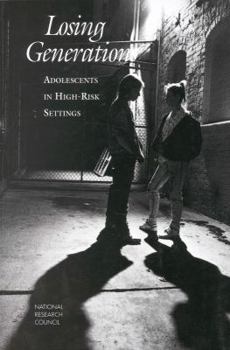Losing Generations: Adolescents in High-Risk Settings
At least 7 million young Americans--fully one-quarter of adolescents 10 to 17 years old--may be at risk of failing to achieve productive adult lives. They use drugs, engage in unprotected sex, drop out of school, and sometimes commit crimes, effectively closing the door to their own futures. And the costs to society are enormous: school and social services are overwhelmed, and our nation faces the future with a diminished citizenry.
This penetrating book argues that the problems of troubled youth cannot be separated from the settings in which those youths live--settings that have deteriorated significantly in the past two decades. A distinguished panel examines what works and what does not in the effort to support and nurture adolescents and offers models for successful programs.
This volume presents an eye-opening look at what millions of the nation's youths confront every day of their lives, addressing:
How the decline in economic security for young working parents affects their children's life chances. How dramatic changes in household structure and the possibilities of family and community violence threaten adolescents' development. How the decline of neighborhoods robs children of a safe environment. How adolescents' health needs go unmet in the current system.Losing Generations turns the spotlight on those institutions youths need--the health care system, schools, the criminal justice, and the child welfare and foster home systems--and how they are functioning.
Difficult issues are addressed with study results and insightful analyses: access of poor youths to health insurance coverage, inequities in school funding, how child welfare agencies provide for adolescents in their care, and the high percentage of young black men in the criminal justice system.





